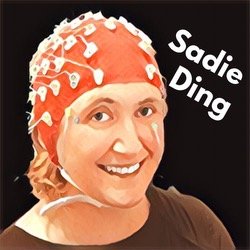Severely Deficient Autobiographical Memory (SDAM)
What is SDAM?
Don’t let the name scare you. SDAM isn’t a disorder, and the guy who named it regrets focusing so much on the deficit aspect. Rather, we SDAMers just happen to occupy one end of the normal human mnemonic continuum. While most humans occupy the middle — striking a balance between storing information in episodic and semantic memory — SDAMers put almost all of our chips on semantic memory. Meanwhile, HSAM (highly superior autobiographical memory) folks put almost all of their chips on episodic memory.
What is semantic and episodic memory?
Episodic memory is the ability to mentally time travel to moments from your past and re-experience them, often visually. Semantic memory is generally thought of as your memory for facts. When people with SDAM think back on our lives, it feels more like recalling information we read somewhere, rather than revisiting moments that we personally lived through.
While I can tell you lots of stories from my life, I can’t re-live them like neurotypical people can. I quickly lose details that are irrelevant to the storyline — things like the weather, what anyone was wearing, or the calendar date. People with HSAM hold on to all this information — and more!
Do people with SDAM have any special strengths?
Yes! Our tendency to jettison irrelevant details helps us to see the big picture. For instance: When I go see a movie, I immediately forget the names of the characters and even parts of the plot, but I generally have a sense of the larger themes and motifs. Similarly, I don’t remember nearly as many life events as a neurotypical person would, but what I do remember hangs together nicely.
How do I get an official diagnosis?
SDAM is not a disorder, so you can’t get an official diagnosis. If you think you have it — e.g. if you have no ability to mentally time travel to moments from your past — you probably do. If you want external validation, you can try to get into a study, but the pickings are slim. Currently there’s only one lab studying SDAM that I know of.
Are you sure your memories are not just repressed or something?
So far, all the recorded cases of SDAM are folks who have no history of physical or psychological trauma. Additionally, people with SDAM have a uniformly poor memory and we report having always been this way. People with trauma-based memory loss tend to have conspicuous holes in their otherwise normal memory.
How does having SDAM affect your life?
Like people with aphantasia, SDAMers tend to be drawn to STEM fields — perhaps because we have a knack for abstraction and conceptual thinking. So far, all the recorded cases are perfectly healthy and happy, if a little alarmed to discover that our personal memories are rather impoverished compared to the norm.
What is the relationship between SDAM and aphantasia?
All the currently-identified SDAMers have aphantasia to some degree, while only about half of people with aphantasia claim to have poor autobiographical memory. So, clearly there’s a relationship, but scientists are still trying to figure it out. My personal hunch is that they are different angles on the same phenomena — and I suspect that a lot of aphants who don’t identify has having SDAM would change their mind if they knew what the experience of mental time travel is like for neurotypical people.
Are there any SDAM support or discussion groups?

